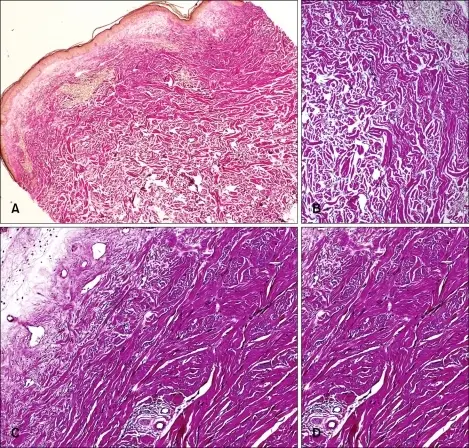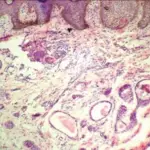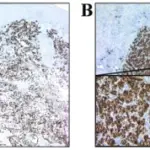Lichen sclerosus of the vulva is chronic inflammatory dermatosis distinguished by ivory-white plaques or patches with glistening surface usually affecting the vulva and anus.
What is the Pathology of Vulvar Lichen Sclerosus?
The pathology of vulvar lichen sclerosus is:
-Etiology: The cause of vulvar lichen sclerosus is might the overreactive immune system or the hormonal imbalance.
-Genes involved: p53, CDKN2A, galectin-7.
-Pathogenesis: The sequence of events that lead to vulvar lichen sclerosus is: inflammation of papillary dermis causes fibrosis of upper dermis causing lichen sclerosus of vulva.
-Morphology: The morphology associated with vulvar lichen sclerosus shows inflammatory lesions and small ivory-coloured slightly raised areas.
-Histology: The histology associated with vulvar lichen sclerosus shows hyperkeratosis, follicular infundibulae plugging.
How does Vulvar Lichen Sclerosus Present?
Patients with vulvar lichen sclerosus typically in females at any age. The symptoms, features, and clinical findings associated with vulvar lichen sclerosus include discomfort, pain, itching, redness, bleeding, painful sex.
How is Vulvar Lichen Sclerosus Diagnosed?
Vulvar lichen sclerosus is diagnosed by physical examination, or biopsy.
How is Vulvar Lichen Sclerosus Treated?
Vulvar lichen sclerosus is treated by corticosteroid ointments, calcineurin inhibitors for patients who respond poorly to steroids.
What is the Prognosis of Vulvar Lichen Sclerosus?
The prognosis of vulvar lichen sclerosus is good. There is no associated mortality until the malignancy is developed.



